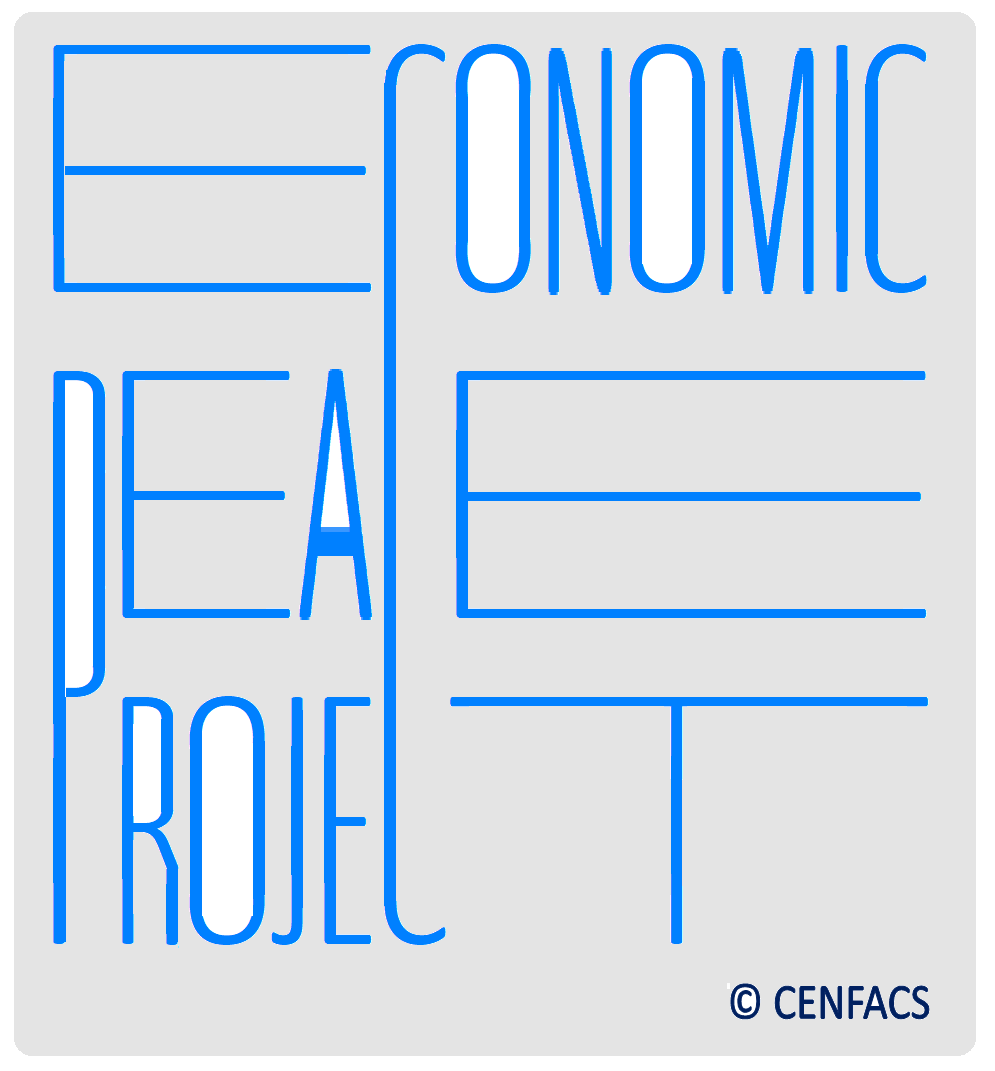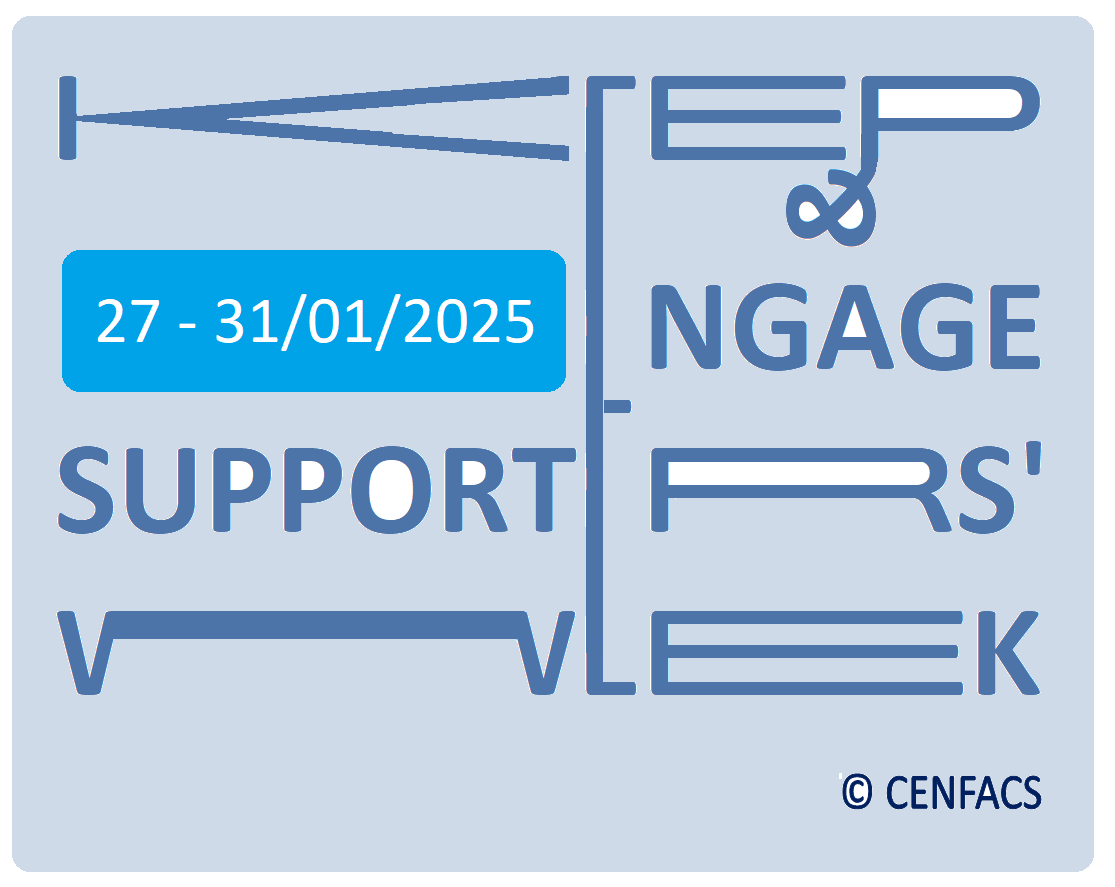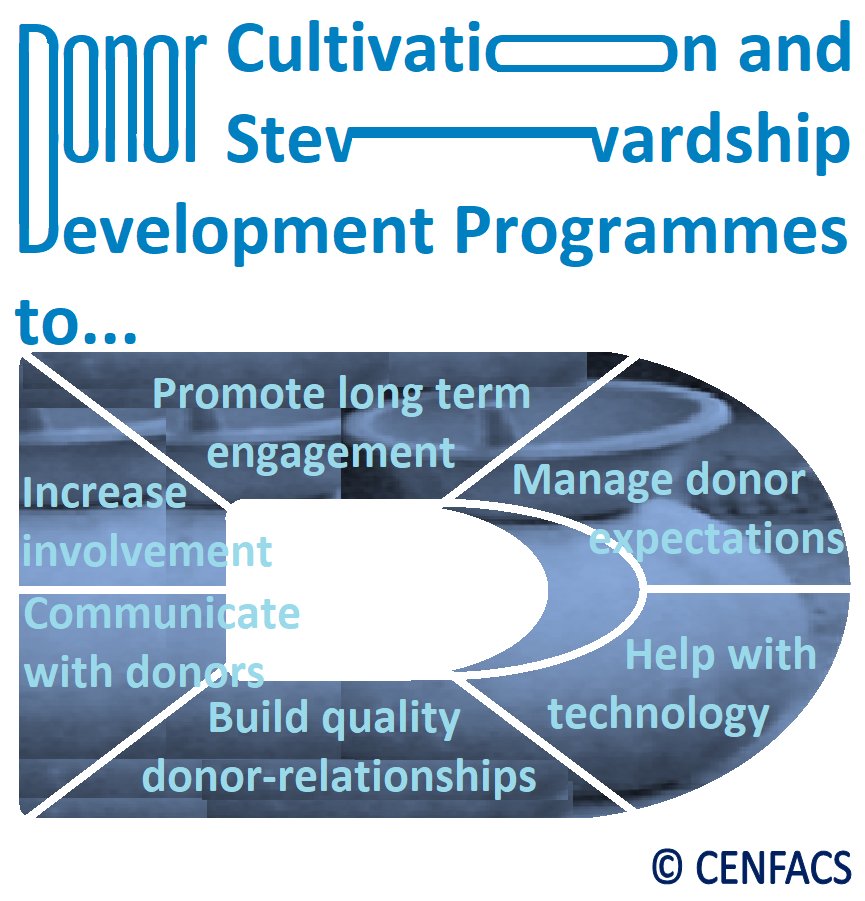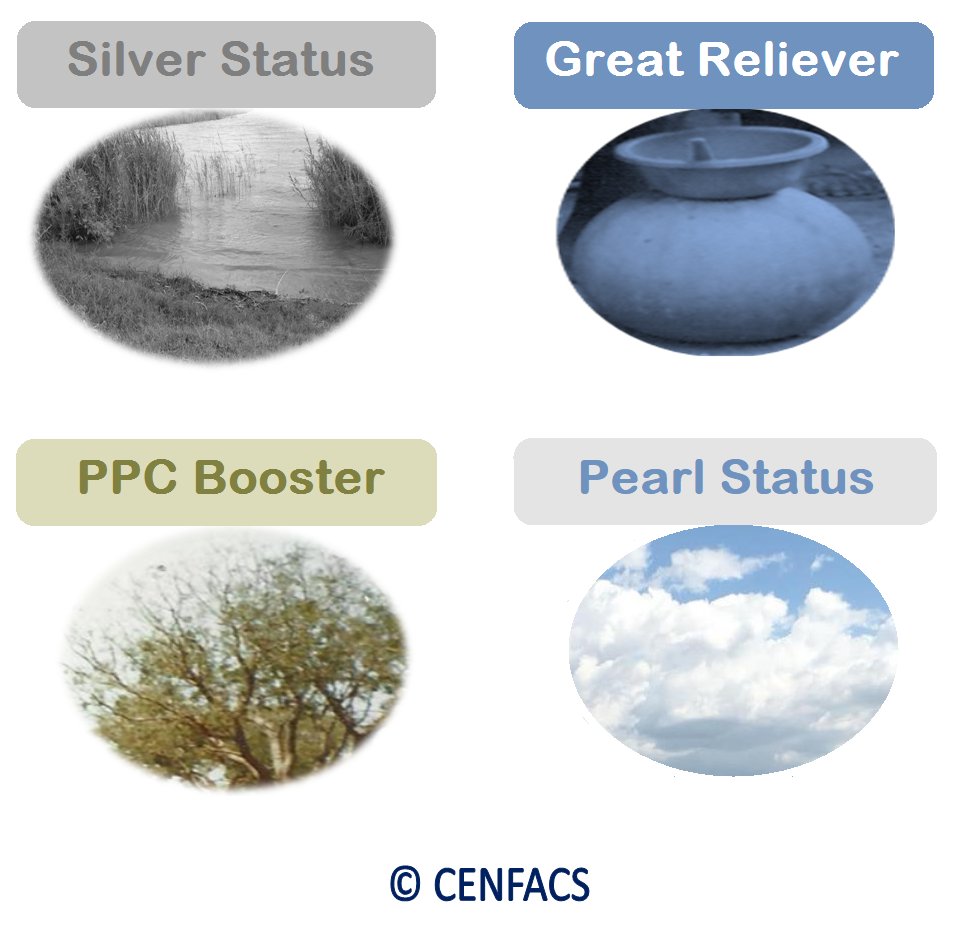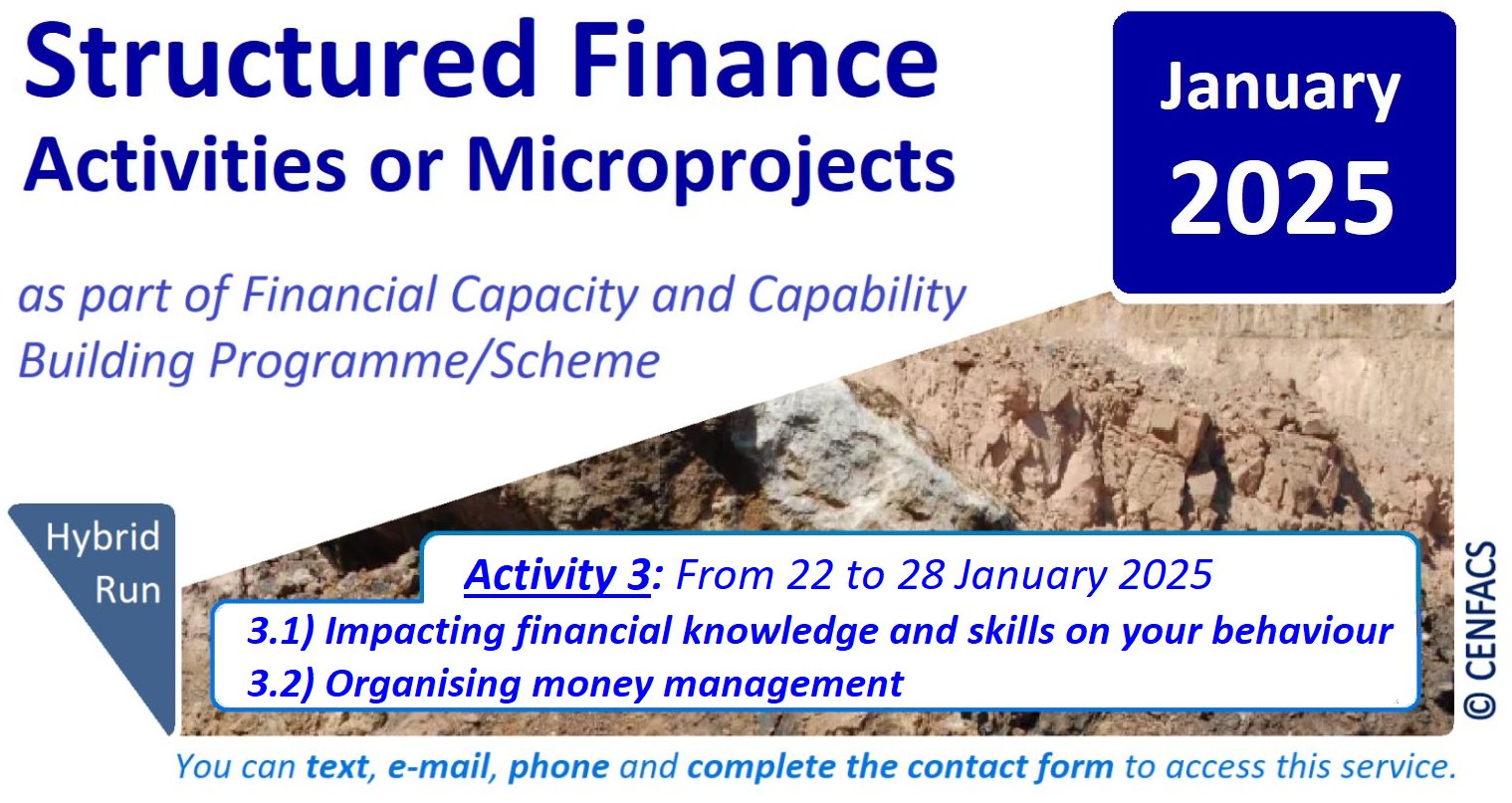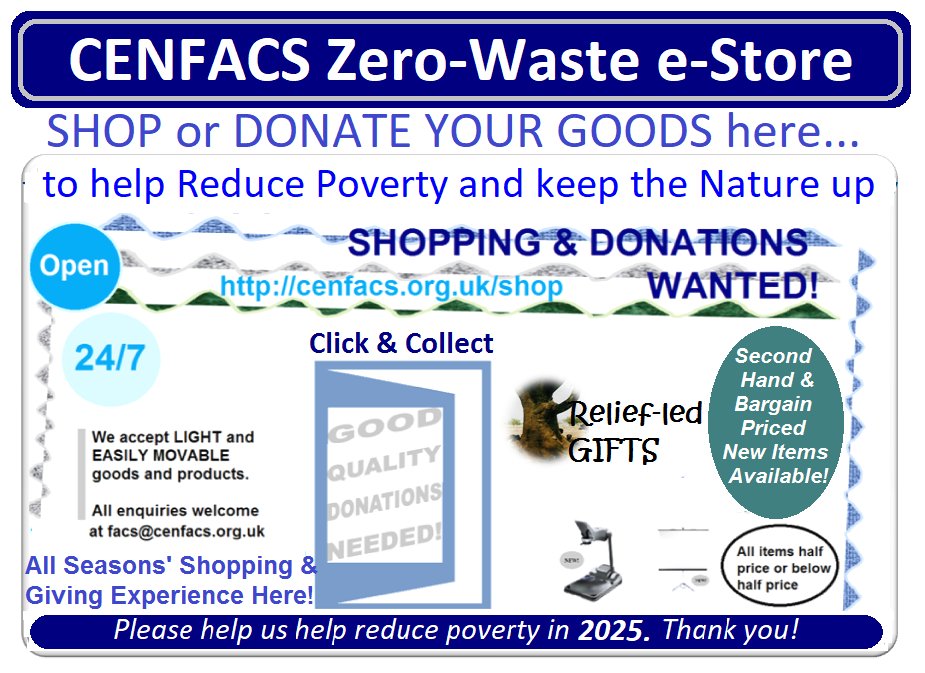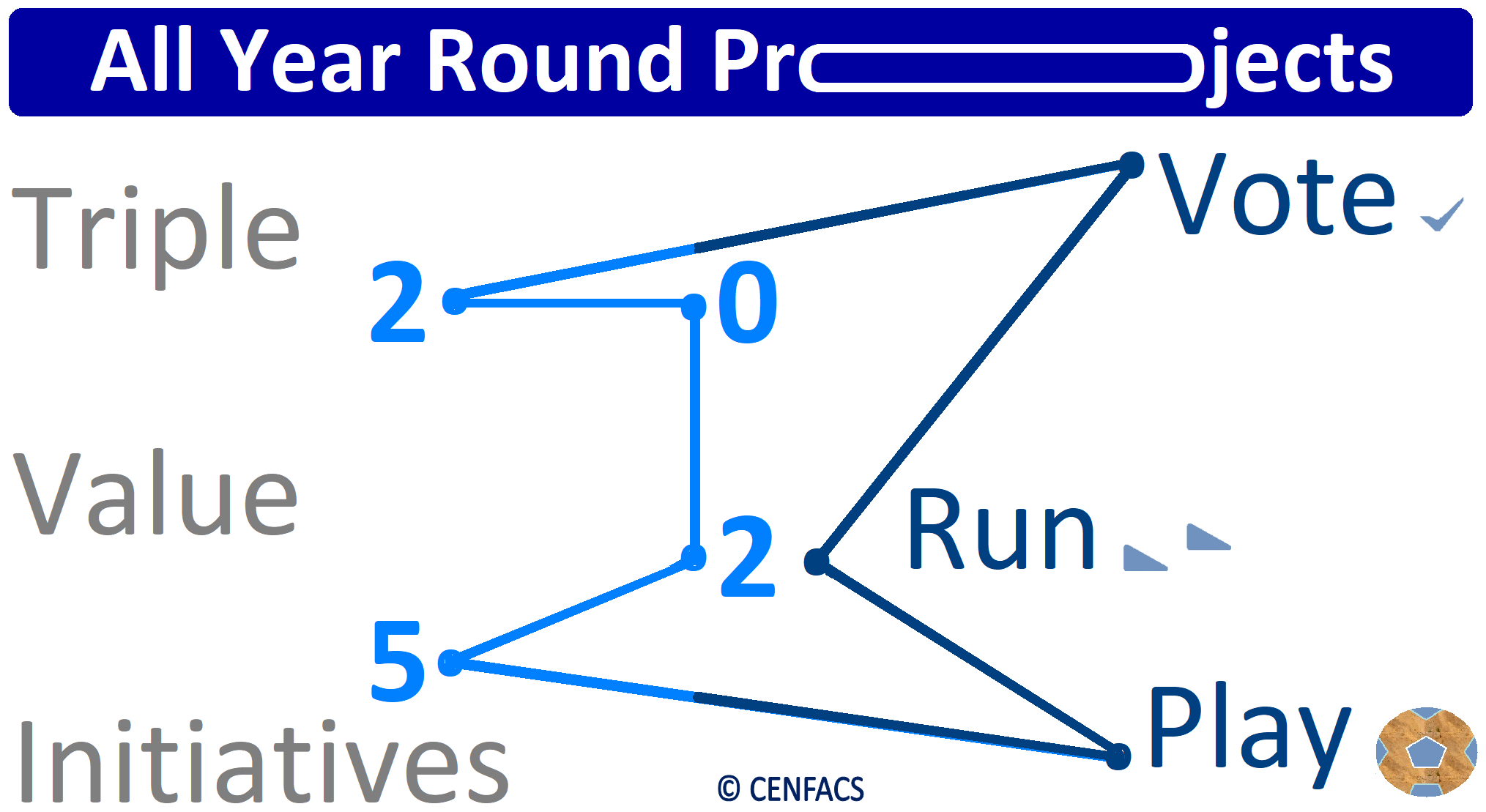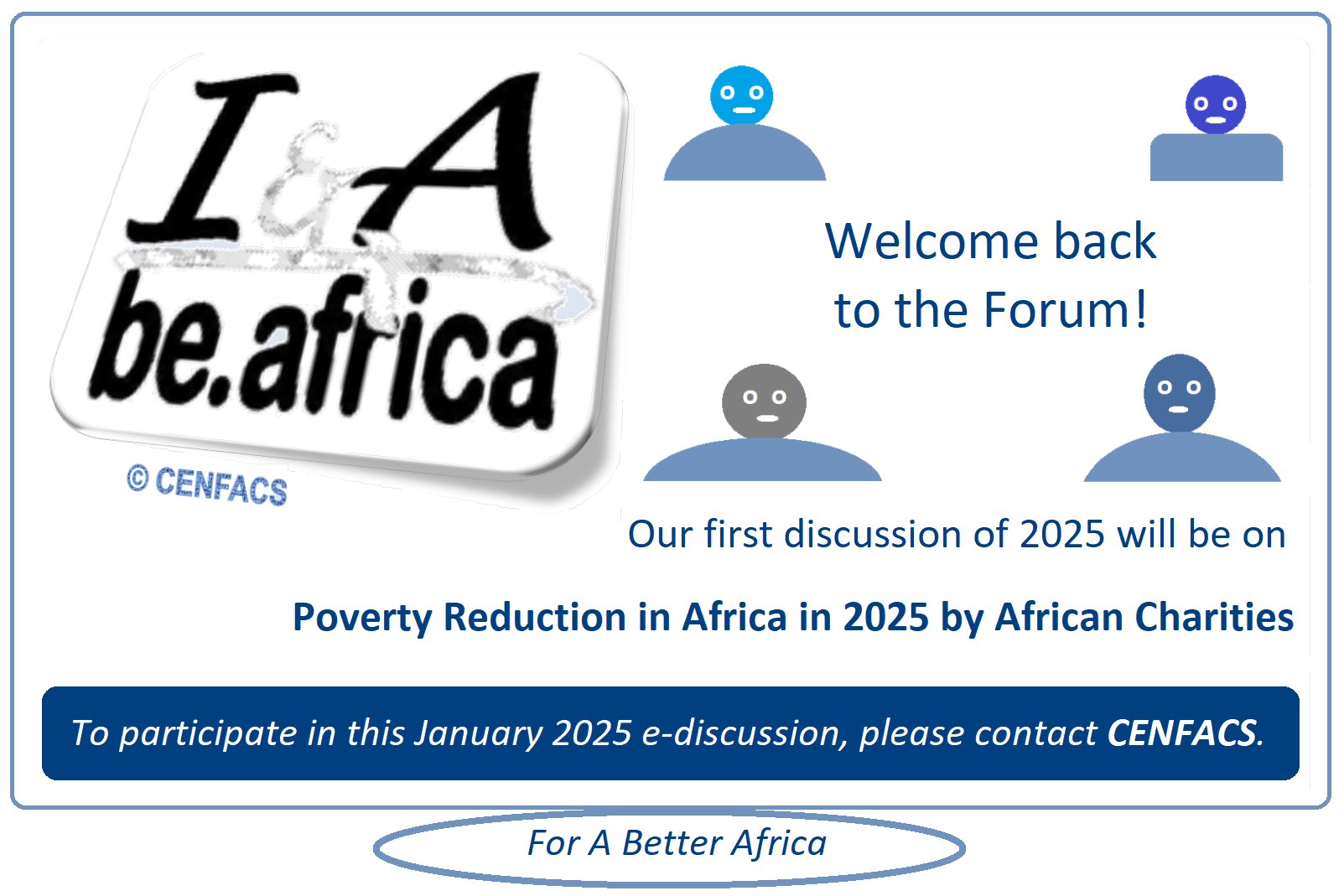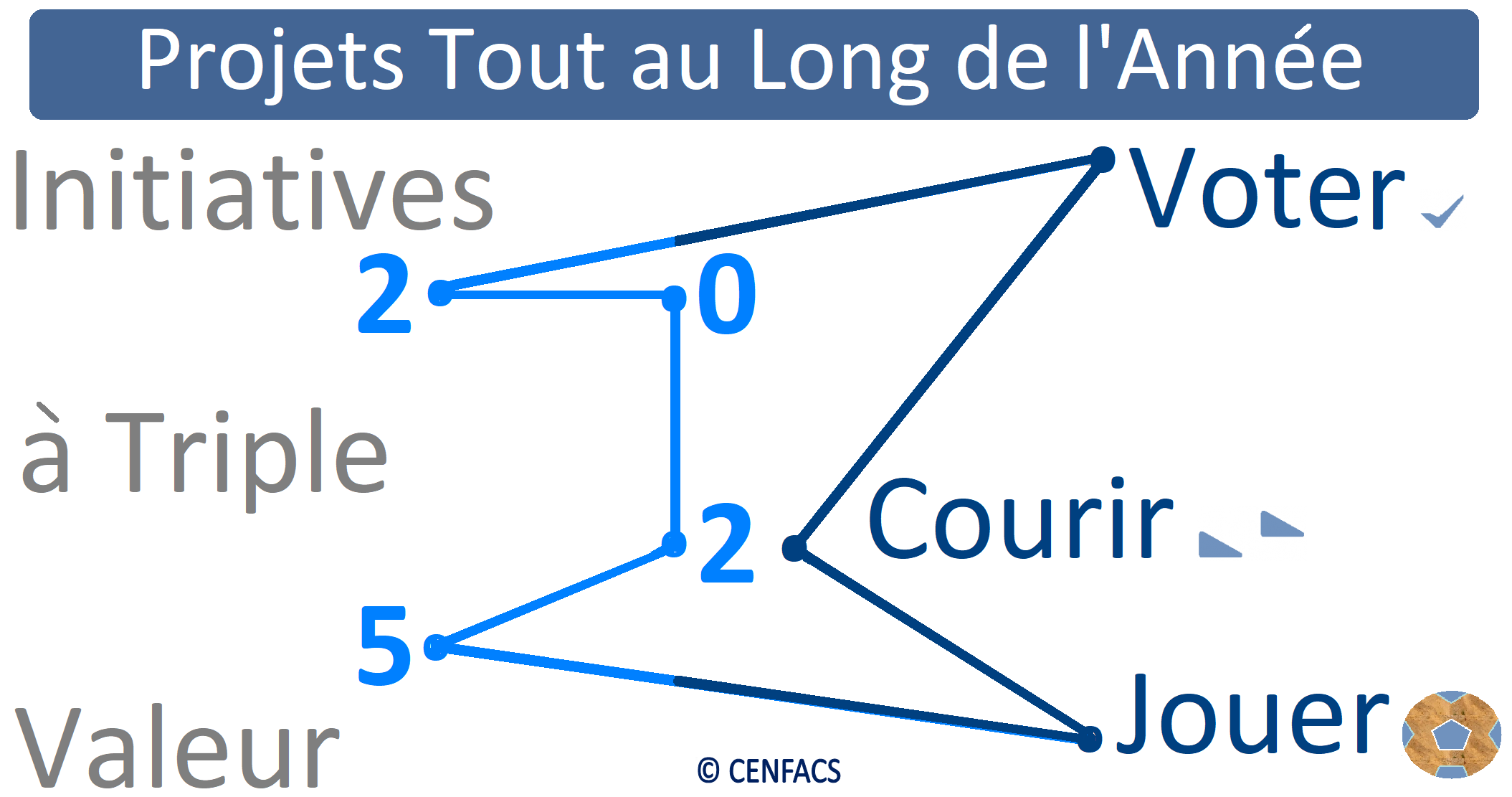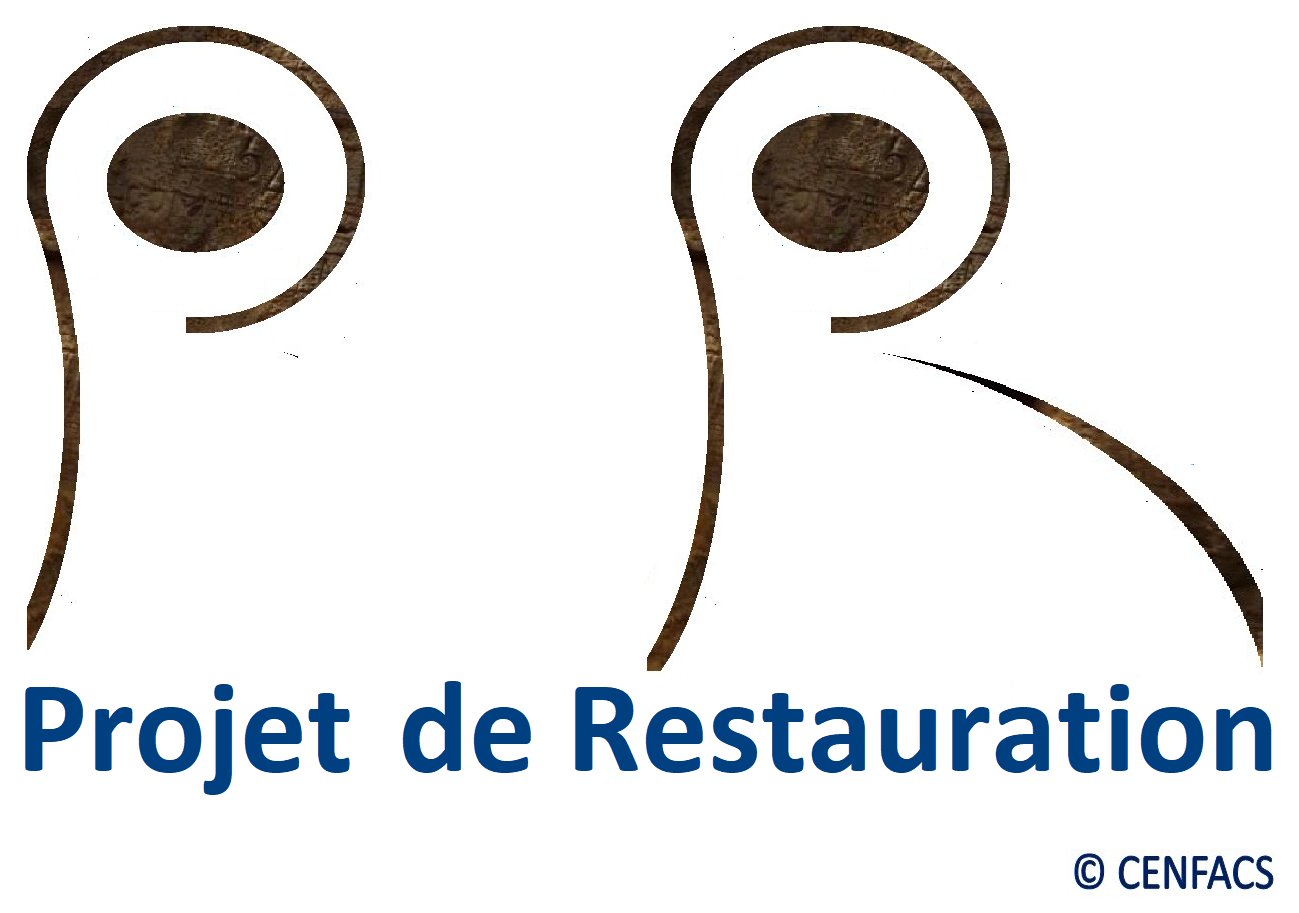Welcome to CENFACS’ Online Diary!
22 January 2025
Post No. 388
The Week’s Contents
• Economic Peace Project
• 2025 Donor Cultivation and Donor Stewardship Development Programmes
• New Year’s Structured Finance Activities/Micro-projects under Financial Capacity and Capability Building Programme/Scheme: Activity 3
… And much more!
Key Messages
• Economic Peace Project
Our investigation about the work of African Charities and Their Contribution to Economic Peace and Poverty Reduction in Africa continues. In this continuation, we have the proposals for Economic Peace Project (EPP) which we would like to share with you.
EPP, which is part of our Season of Light Campaign, is an attempt to take at practical level some the key issues raised in CENFACS‘ newsletter FACS no. 86; issues about African Charities’ Work on Economic Peace and Poverty Reduction.
EPP, if well funded and successfully implemented, will come along with the following features or benefits:
σ addressing issues leading to conflicts, inequalities and inequity
σ enhancing social mobility for project beneficiaries
σ leading to income stream generation
σ giving opportunity to trade and find peace via trade
σ eliminating barriers to peace
etc.
EPP will help to practise economics and peace in the process of poverty reduction and the enhancement of sustainable development. In combining economics and peace, EPP will offer hope for those who are looking for poverty reduction to happen to them and or to their future generations. Poverty reduction and enhanced sustainable development do not happen by luck or chance. They can be achieved where efforts have been made to create favourable economic conditions and secure peace dividends.
So, the real aim of this project is to reduce and possibly end poverty linked to the lack of economic peace. To get insights into it, please read the summary of EPP proposals under the Main Development section of this post.
• 2025 Donor Cultivation and Donor Stewardship Development Programmes
Our 2025 strategy for fostering the growth of prospective donors as well as for building and maintaining relationships with donors has been reactivated. As indicated in the title, this strategy or programme is made of two parts: donor solicitation and donor stewardship.
Regarding donor solicitation, we are re-embarking on the process of acquiring new donors or building relationships with prospective donors to solicit a donation from them. In this process, we are exploring qualifiable prospects.
Concerning donor stewardship, we are focussing on existing donors and retaining them. To facilitate our donor stewardship journey, we will be running “Keep and Engage Supporters Week” from week beginning 27 January 2025.
Next week’s event support and the 2025 collected processes and strategy for relationship-building with and retaining donors will consist of two areas: donor solicitations and donor products to match these solicitations.
• • Donor Solicitations
We are continuing our solicitation to some of you as donors and /or stewards of poverty relief as follows.
• • • Solicitation relating to CENFACS’ Donor Cultivation Programme
Under this programme, donors can build quality donor-relations with CENFACS.
In this Year of Restoration at CENFACS, donor developers can help us in a number of ways, such as:
σ Influence the right people engaged to and informed about our work
σ Make our donations to grow over time
σ Help with technology like donor management software/tools to cultivate our prospects into long-term valuable donors
σ Increase the levels of involvement from users
σ Help us to manage donors expectations
σ Assist us in donor-development goals and tasks such as event support.
• • • Solicitation relating to CENFACS’ Donor Stewardship Development Programme
Under this programme, you can help us in the following:
σ Steward donors towards long-term commitment
σ Build and maintain lasting relationships and communications with those who gave to our users or us a gift or any of our noble and beautiful causes of poverty reduction
σ Enable access to and use of donor stewardship tools.
• • Donor Development Products on Offer in 2025
We recognise our funders or donors and their acts of giving through different status levels often linked to their continuous contributions or commitments to our work and cause. As a result, we are giving away the products below to those who would like to engage, develop their interest, to build bond and loyalty to CENFACS and CENFACS’ work.
We are offering to the donor development market a donor status to enable those who want to commit themselves on regular basis to giving or boosting their status as donor to have the opportunity to do so.
We are inviting those who want to commit themselves as funder or donor to do so. They can do it by supporting CENFACS with a silver donation, a great relief, a product booster and a pearl donation.
• • • Free for Supporters: Silver Status
Silver status is the legacy of CENFACS’ “Quadranscentennial” Year (2019). It is about supporting our projects as you can or as you choose if you visit them or if you happen to be within the area of their implementation. This will boost your support and help you to win a silver status as CENFACS’ Mid-level Donor or Supporter in a CENFACS’ Year of Restoration.
Alternatively, you can fund CENFACS’ Year of Restoration to win the same status and continue CENFACS’ legacy.
• • • Want to provide Great Relief as a High-level Donor or Supporter
You can provide great relief by becoming a regular giver or supporter, adding value to you support and boosting your support.
For example, at this challenging time of the high costs of living, we need those who can provide that sort of relief to keep our action going and out of the disruption caused by the costs of living.
Many individuals and organisations stepped in to support their good deserving causes during the storming time of the health crisis (the coronavirus crisis); you can do the same by supporting CENFACS during this time of the costs of living.
For those who are interested in, they can contact CENFACS for details about becoming a Great Reliever.
• • • Need to boost your support or stewardship as a Product Booster
You can choose a particular sustainable initiative or programme or even CENFACS as your boost product.
You can support 3 projects or 2 projects and CENFACS
You can support 3 programmes or 2 programmes and CENFACS.
This will elevate your position as a Project or Programme Funder or a Product Booster.
• • • Another Free for Supporters: Pearl Status
This title has been created as the legacy of CENFACS’ Tricennial Year (2024). It acknowledges and appreciates the level of support provided or to be provided by Mid-level Donors supporting our CENFACS as a tricennial creation as in the context of CENFACS’ Tricennium. The title can also be awarded to those who give to our creative/creation projects on regular basis.
For further details about boosting your support or stewardship, please contact CENFACS.
• New Year’s Structured Finance Activities/Micro-projects under Financial Capacity and Capability Building Programme/Scheme: Activity 3 (22 to 28/01/2025)
We are continuing our programme and scheme to build Financial Capacity and Capability within the community. We are available to work in hybrid mode with users via the Financial Capacity and Capability Building Programme (FCCBP) or Scheme (FCCBS) so that our community members can be stronger this year. Both FCCBP and FCCBS will help beneficiaries to reduce risks linked to financial incapacity and incapability while improving their intergenerational income and transfers.
The third activities of FCCBP and FCCBS, which will be run from 22 to 28 January 2025, have been highlighted below.
• • 22 to 28 January 2025: Making Financial Knowledge and Skills Positively Impact on Your Financial Behaviour (Activity 3 of FCCBP)
In this activity, we will try to work with participants through a research pilot exercise with a simple questionnaire to understand financial management behaviour and how they can apply it in their real life. But, what is financial management behaviour?
Financial management behaviour can be understood in many ways. Its definition here comes from the work of Kholilah and Iramani in 2013, which has been mentioned by Anisah Firli and Nurul Hidayati (1). This mentioned definition is
“Financial management behaviour is a person’s financial management ability, ranging from planning, managing, and controlling to saving” (p. 43)
On the same page 43, Anisah Firli and Nurul Hidayati also quoted the work of Herlindawati in 2017, who argued that
“Financial management behaviour is identified as the impact of an increase in individual desires to meet the needs and wants by adjusting their income levels”.
These definitions will be used to determine the influence of financial knowledge, financial attitude, skills and personality on financial behaviour of the CENFACS Community.
If any of our users want to participate in this exercise, they can do it by contacting CENFACS. Those who have some concern about their financial behaviour, they can communicate with CENFACS as well.
• • 22 to 28 January 2025: Financial Capacity and Capability to Organise Money Management (Activity 3 of FCCBS)
To conduct money management, one may need to understand what it means. Our understanding of it is given by ‘nerdwallet.com’ (2) which states that
“Money management is a plan for your money so you can make the most of it. This plan typically involves budgeting and saving money, avoiding or reducing debt and investing your future”.
This definition can be put into practice. We can work with those who would like to arrange or prepare a plan about how they can or will deal with their money.
Indeed, being able to earn money is one thing. Being capable of organising the management of the money you earn is life-saving skill. In the this third activity of the above-mentioned scheme, we will be working with the kind of organisation that those in need would like to put in place in order to better manage their money. In this activity, we shall work with participants on how they can develop a simple money management plan.
If anyone of our members has a question on how to impact their financial knowledge and skills on their financial behaviour or how to organise their money management plan, they should not hesitate to contact CENFACS.
In addition, if they generally have problems in building their financial capacity and capability, they can communicate with CENFACS so that we can work together on these matters and help them stay stronger this New Year 2025.
Extra Messages
• The Season of Giving, Gifting and Lifting Continues with SHOPPING and DONATIONS at http://cenfacs.org.uk/shop/
• 2025 All Year-round Projects (Triple Value Initiatives): Play, Run and Vote for Poverty Relief and Sustainable Development
• CENFACS’ be.Africa Forum Discuses Poverty Reduction in Africa in 2025 by African Charities
• The Season of Giving, Gifting and Lifting Continues with SHOPPING and DONATIONS at http://cenfacs.org.uk/shop/
Every season or every month is an opportunity to do something against poverty and hardships. January too is a good and great month of the year to do it.
You can donate or recycle your unwanted and unneeded goods gifts you received over the festive days to CENFACS’ Zero-Waste e-Store, the shop built to help relieve poverty and hardships.
You can as well buy second hand goods and bargain priced new items and much more.
CENFACS’ Zero-Waste e-Store needs your support for SHOPPING and GOODS DONATIONS.
You can do something different this Season of Goods Donations by SHOPPING or DONATING GOODS at CENFACS’ Zero-Waste e-Store.
You can DONATE or SHOP or do both:
√ DONATE unwanted Festive GOODS GIFTS and PRODUCTS to CENFACS’ Zero-Waste e-Store this January and Winter
√ SHOP at CENFACS Zero-Waste e-Store to support the noble and beautiful causes of poverty relief this January and Winter.
Your SHOPPING and or GOODS DONATIONS will help to the Upkeep of the Nature and to reduce poverty and hardships.
This is what the Season of Giving, Gifting and Lifting is all about.
• 2025 All Year-round Projects (Triple Value Initiatives): Play, Run and Vote for Poverty Relief and Sustainable Development
CENFACS’ Triple Value Initiatives, the All Year-round Projects, are now back for this year. You can play, run and vote to reduce poverty this year again.
The 2025 Edition of All Year-round Projects starts this 22 January 2025.
You can Run or Organise a Run Activity to Reduce Poverty in 2025.
You can Play the CENFACS League for Poverty Relief.
You can Vote your 2025 African Poverty Relief Manager.
Before proceeding with one of the All Year Round Projects, it is recommendable to speak to CENFACS. We can discuss in details together your plan or the way you want to approach, participate or engage with these initiatives.
• • How CENFACS Can Help You to Engage with Triple Value Initiatives
The following examples show what we can discuss together before you start.
Example 1: Run Themes
Run themes can include seasonal themes (e.g., seasonal runs), obstacle courses (e.g., mud and obstacle runs) and fun activities (e.g., colour runs).
Let’s take Run to Reduce Poverty.
There are Run Themes. You can Run alone or Run as group or even Run for fun. You can do Seasonal Run or Run to raise money for one of our noble and beautiful causes or even Run to raise awareness. However, there are health and safety issues that everyone who will be involved in this Run activity must follow.
There are ways of making your Run event simpler. To do that, you can contact CENFACS before you plan your event. CENFACS can help you to select your theme. You need to confirm the date and time with CENFACS.
There are other things to consider as well, such as
location, engagement in activities, prizes (rewards for participants), health and safety issues, child protection policy if children are involved, insurance cover, budget, refreshments, communication (e.g., sharing the information about the event online, especially on social media), etc.
Example 2: Play Station Game
Let’s take another example, which is Playing CENFACS’ League for Poverty Relief.
You can create your own play station game with CENFACS’ League and run your own tournament and matches. You can even involve colleagues, friends and families sharing the same passion about how the selected African countries are working to reduce poverty. You can group or rate these countries according to poverty reduction performance (showing which one comes on top, middle and bottom).
You can as well use game theories if you know them. Alternatively, you use poverty simulator games or create your own fun and easy board game. Like for Run activity, you must include health and safety measures and guidance. However, any game created has to be themed around poverty relief.
Example 3: People to Watch
Let’s take the last example, which is Voting Your Poverty Relief Manager.
You can create your own list of Top 25 People to Watch throughout the year. One or two of them will be potentially the best managers of 2025. You can collect data and facts about them, follow their annual performance, assess their achievements and vote the best between the two at the end. You will need to consider their experience, communication and leadership skills.
While you are running or organising a run activity, playing the CENFACS’ League and voting your Manager of the Year 2025; we would like you to share with us and others your progress, news, events, experiences, stories and reports regarding these projects. We would like as well to hear from you some of the pitfalls or hurdles you may encounter in the process of dealing with your chosen initiative/project. As Triple Value Initiatives are results-oriented, the end product of your share will be a kind of Action-Results Report 2025.
• • What We Would Like to Hear at the End of This Process
We would like to hear from you the following three bests or stars of the year:
√ The Best African Country or Countries of 2025 which will best reduce poverty
√ The Best African Global Games Runners of 2025
√ The Best African Development Managers of 2025.
The deadline to tell us your bests or stars is 23 December 2025.
As we progress throughout the year, further information and support (in the form of workshops, discussions, questionnaires, questions-answers, focus groups, etc.) will be released for CENFACS’ Triple Value Initiatives.
Please remember, the early you start the better for you.
For more information about these projects and how they work, please contact CENFACS.
• CENFACS’ be.Africa Forum Discuses Poverty Reduction in Africa in 2025 by African Charities
How Africa’s Charitable Organisations Can Use the 5 Os (Opportunities, Openings, Operations, Optimisms and Options) They Have to Further Reduce Poverty in Africa in 2025
In our last week’s post, we argued that 2025 can be a Year of Opportunities, Openings, Full Operations, Optimisms and Options for Africa. We specifically stated in our Twitter post of 15 January 2025 that the 5 Os for African charities to further reduce poverty in 2025 were:
1) Opportunity: Africa’s population to reach 1.5 billion in 2025 (3)
2) Opening: economic growth reaching nearly 3.2% (4)
3) Optimism: the Lobito Corridor
4) Operation: the post-pandemic activity expansion
5) Option: choices of investors.
In this first discussion of our forum, we are debating how Africa’s charitable organisations can fully operate, mindfully take option and optimistically engage with the 2025 array of tremendous opportunities and openings to reduce and end poverty in Africa. In simple words, how they can turn the challenges faced by Africa into opportunities to achieve BIG numbers in poverty reduction. The debate is also revolving around what these organisations can do to use the array of opportunities of 2025 so that 2025 could be remembered in living memory as a post-pandemic year of truly great results in terms of poverty reduction and sustainable development.
The above are the terms of reference for our first discussion of 2025. CENFACS’ be.Africa Forum would like to hear your views or opinions on the above-mentioned discussion.
Those who may be interested in this discussion can join in and or contribute by contacting CENFACS’ be.Africa, which is a forum for discussion on matters and themes of poverty reduction and sustainable development in Africa and which acts on behalf of its members in making proposals or ideas for actions for a better Africa. They can contact us at our usual address on this site.
Message in French (Message en français)
• 2025 Projets ‘Tout au Long de l’Année’ (ou Initiatives à Triple Valeur) : Jouer, Courir et Voter pour la Lutte contre la Pauvreté et le Développement Durable
Les Initiatives à Triple Valeur du CENFACS, les Projets ‘Tout au Long de l’Année’, sont maintenant de retour pour cette année. Cette année encore, vous pouvez jouer, courir et voter pour réduire la pauvreté.
L’édition 2025 de Projets ‘Tout au Long de l’Année’ commence ce 22 janvier 2025.
Vous pouvez courir ou organiser une activité de coursepour réduire la pauvreté en 2025.
Vous pouvez jouer à la Ligue CENFACSpour la Lutte contre la Pauvreté.
Vous pouvez voter pour votre Responsable de la Lutte contre la Pauvreté en Afrique 2025.
Avant de procéder à l’un des Projets ‘Tout au Long de l’Année’, il est recommandé de s’adresser au CENFACS. Nous pouvons discuter ensemble en détail de votre plan ou de la manière dont vous souhaitez participer ou vous engager dans ces initiatives.
• • Comment le CENFACS peut vous aider à vous engager dans des Initiatives à Triple Valeur
Les exemples suivants montrent ce dont nous pouvons discuter ensemble avant de commencer.
Exemple 1 : Exécuter des thèmes de course
Les thèmes de course peuvent inclure des thèmes saisonniers (p. ex., courses saisonnières), des courses d’obstacles (p. ex., courses dans la boue et des courses d’obstacles) et des activités amusantes (p. ex., courses en couleur).
Prenons la course pour réduire la pauvreté.
Il existe des thèmes de course. Vous pouvez courir seul ou courir en groupe ou même courir pour le plaisir. Vous pouvez faire une course saisonnière ou une course pour collecter des fonds pour l’une de nos nobles et belles causes ou même courir pour sensibiliser le public. Cependant, il y a des questions de santé et de sécurité que tous/toutes ceux/celles qui participeront à cette activité de course doivent respecter.
Il existe des moyens de simplifier votre course. Pour ce faire, vous pouvez contacter le CENFACS avant de planifier votre événement. Le CENFACS peut vous aider à choisir votre thème. Vous devez confirmer la date et l’heure auprès du CENFACS.
Il y a aussi d’autres éléments à prendre en compte, tels que :
le lieu, la participation aux activités, les prix (récompenses pour les participant/e/s), les questions de santé et de sécurité, la politique de protection de l’enfance si des enfants sont impliqués, la couverture d’assurance, le budget, les rafraîchissements, la communication (par exemple, le partage d’informations sur l’événement en ligne, en particulier sur les médias sociaux), etc.
Exemple 2 : Jeu de Station de Jeu
Prenons un autre exemple, celui de la Ligue pour la Lutte contre la Pauvreté du CENFACS.
Vous pouvez créer votre propre jeu de station de jeu avec la ligue CENFACS et organiser votre propre tournoi et matchs. Vous pouvez même impliquer des collègues, des amis et des membres de la famille partageant la même passion pour la façon dont les pays africains sélectionnés s’efforcent de réduire la pauvreté. Vous pouvez regrouper ou évaluer ces pays en fonction de leurs performances en matière de réduction de la pauvreté (en montrant lequel se situe en haut, au milieu et en bas).
Vous pouvez également utiliser les théories des jeux si vous les connaissez. Alternativement, vous pouvex utiliser des jeux de simulation de pauvreté ou créer votre propre jeu de société amusant et facile. Comme pour l’activité Course, vous devez inclure des mesures et des conseils en matière de santé et de sécurité. Cependant, tout jeu créé doit avoir pour thème la lutte contre la pauvreté.
Exemple 3 : Personnes à suivre
Prenons le dernier exemple, qui est celui du vote de votre responsable ou directeur/rice de lutte contre la pauvreté.
Vous pouvez créer votre propre liste des 25 personnes les plus regardables tout au long de l’année. Une ou deux d’entre eux seront potentiellement les meilleurs responsables ou directeurs/rices de 2025. Vous pouvez collecter des données et des faits à leur sujet, suivre leurs performances annuelles, évaluer leurs réalisations et voter pour le meilleur des deux à la fin. Vous devrez tenir compte de leur expérience, de leurs compétences en communication et en leadership.
Pendant que vous courez ou organisez une activité de course, que vous jouez à la Ligue CENFACS et que vous votez pour votre de l’année 2025; nous aimerions que vous partagiez avec nous et avec d’autres vos progrès, vos nouvelles, vos événements, vos expériences, vos histoires et vos rapports concernant ces projets. Nous aimerions également connaître de votre point de vue certains des pièges ou des obstacles que vous pourriez rencontrer dans le processus de traitement de l’initiative ou du projet que vous avez choisi.
Comme les Initiatives à Triple Valeur sont axées sur les résultats, le produit final de votre action sera une sorte de Rapport Action-Résultats 2025.
• • Ce que nous aimerions entendre à la fin de ce processus
Nous aimerions avoir de votre part les trois meilleurs ou stars de l’année suivants:
√ Le ou les meilleurs pays africains de 2025 qui réduiront le mieux la pauvreté
√ Les meilleur(e)s coureurs/ses africain(e)s des jeux mondiaux de 2025
√ Les meilleurs responsables de développement africain de 2025.
La date limite pour nous communiquer vos meilleurs résultats ou étoiles est le 23 décembre 2025.
Au fur et à mesure que nous progressons tout au long de l’année, d’autres informations et soutiens (sous forme d’ateliers, de discussions, de questionnaires, de questions-réponses, de groupes de discussion, etc.) seront publiés pour les Initiatives à Triple Valeur duCENFACS.
N’oubliez pas que plus vous commencez tôt, mieux c’est pour vous.
Pour plus d’informations sur ces projets et sur la manière dont ils fonctionnent, veuillez contacter le CENFACS.
Main Development
• Economic Peace Project
The following items provide the key information about Economic Peace Project (EPP):
σ Definition of EPP
σ The Aim of EPP
σ EPP Beneficiaries
σ Outcomes
σ EPP Indicators
σ Impact Monitoring, Evaluation, Learning and Adaptation
σ Project Funding Status.
Let us summarise each of these items.
• • Definition of EPP
EPP is a SMART (that is, specific, measurable, attainable, relevant and time-bound) positive peace project that will help reduce poverty by dealing with attitudes and structures that can lead to peace for communities that African charities (such as CENFACS‘ Africa-based Sister Organisations) work with.
Through this project, CENFACS will work with Africa-based Sister Charitable Organisations (ASCOs), particularly those engaged in different areas of economic peace or peace economics – such as the design of economic infrastructures and structures that the economically poor and those without peaceful life use, the prevention and mitigation of any latent or potential violent conflicts within the communities and between the communities that ASCOs work with.
The project, which will likely be implemented in areas of Africa that have previously been affected by natural disasters or civil insecurity or wars (like in the Eastern part of the Democratic Republic of Congo, the African Sahel, etc.), will use a rights-based approach in order to respond to the needs of poverty reduction – in terms of equal rights to economically peaceful life – from poor and vulnerable people in Africa. Their needs make the aim of this project.
• • The Aim of EPP
The aim of EPP is to reduce poverty linked to the lack of economic peace in order to create the necessary and even sufficient conditions of sustainable peace for project beneficiaries where the project will be implemented in Africa. After the implementation of EPP, it is hoped that EPP will address needs, enhance people’s economic mobility, and foster local resilience by supporting project users to grab and use economic opportunities available and accessible by them.
• • EPP Beneficiaries
Amongst the types of people in need who could benefit from EPP, as defined above, are
√ Those who are looking for an economically peaceful life
√ Those who do not have their rights recognised to economic peace
√ Those with insecure economic peace rights
√ The disproportionally affected by conflicts and climate change, and excluded vulnerable groups such as women and youth
√ Those who need help with counselling services to find economic peace within themselves, and between them and others
√ Conflict-affected and natural-disaster stricken communities
√ Those who want to run income-generating activities as way of getting out of poverty and finding economic peace
√ Those in need of economic peace skills
√ Poor and vulnerable populations without economic peace
√ The impacted of the geo-economic peace threats and destruction
etc.
Most of the above-mentioned types of beneficiaries will need some form of support in terms of guidance on how they can find and sustain economic peace.
• • Outcomes
After the implementation of EPP, it is expected that the following will be achieved:
√ Reduction in the number of those without economic peace
√ Improvement in the number of people with economic peace skills
√ Enhancement of the relationships between ASCOs, gifts of economic peace, recipient of these gifts and donors of these gifts
√ Improvement of the relationships between ASCOs, economic peace and the design of societies/communities in which ASCOs operate
√ Progress in women’s status and voice on economic peace matters
√ Decrease in the number of those without sustainable peace
√ Betterment of the perception of economic peace within the community
etc.
However, it is better to differentiate outcomes in project beneficiaries from those relating to Africa-based Sister Charitable Organisations.
• • • Outcomes in project beneficiaries or individual level
With the implementation of EPP, there will be
~ jobs creation
~ stimulation of the local economy with economic opportunities for local people
~ fostering of entrepreneurship for those who would like to engage in business
~ resilience to economic shocks and crises
~ increase people’s productivity and their contribution to the local economic growth
~ improvement in people’s well-being and happiness as they find economic peace
etc.
Briefly, project beneficiaries will improve their economic peace status and well-being.
• • • Outcomes in Africa-based Sister Charitable Organisations (ASCOs)
Work undertaken by ASCOs to help reduce poverty linked to the lack of economic peace will lead to:
~ Social cohesion
~ Better cooperation between and within communities
~ Increase trust within communities and between communities
~ promotion of sustainable peace
~ reduced risk of violence
~ scaling down economic toll of conflicts
etc.
In short, working with ASCOs will cover the above-stated areas. These areas will depend on the activities or services that ASCOs are specialised in or are prepared to embark on.
• • EPP Indicators
The set of measures below will help find out whether or not the project will reach its desired objectives and progress towards meeting its defined aim of the reduction of the lack of economic peace. These measures include input, output, outcome and impact indicators.
• • • Input Indicators
Among the input indicators, there are the following:
~ Making sure that any funding to be received for the delivery of EPP is provided as scheduled
~ Checking if basic resources to deliver EPP will be accessible and utilised
~ Tracking support to be given to volunteers and all the people involved in the project, that it meets their needs and standards set in these project proposals.
etc.
• • • Output Indicators
They are:
~ Counting the number of activities to be conducted
~ Measuring the number of individuals with or acquiring economic peace skills or whose life will be improved because the implementation of EPP
~ Tracking economic peace produce and achievements
etc.
• • • Outcome Indicators
They include:
~ Finding out if there will be shifts or changes in the behaviour and practices of EPP beneficiaries or communities
~ Identification of new mechanisms or platforms or patterns of economic peace
~ Verifying if there will be changes in communities and measure these changes
etc.
• • • Impact Indicators
We can mention the following:
~ Reduction in violence and poverty linked to the lack of economic peace
~ Increase sense of economic security as a result of this project
~ Better intra community and inter-community relations
etc.
To sum up, EPP is project that will help to reduce poverty linked to the lack of economic peace in Africa, Where it will be implemented, the project will contribute to the process of building and sustaining economic peace and good relationships within and between communities. It will help the locals to access economic opportunities while fighting the lack of peace.
• • Impact Monitoring, Evaluation, Learning and Adaptation
The Impact Monitoring and Evaluation will ensure that EPP is conflict-sensitive (that is; taking into account the local context and does not exacerbate any existing tensions).
As highlighted above, we have indicators and metrics to measure economic outcomes and peace outcomes resulting from EPP.
We will track progress and identify any issues through the following techniques or tools: surveys, interviews, focus groups and other reliable data collection techniques or methods.
We will conduct periodic evaluation of EPP to assess the overall impact of EPP. This is to say that evaluation will be conducted regarding the efforts spent on this project to find out whether or not these efforts are value for economic peace, as far as the reduction of poverty linked to the lack of economic peace is concerned.
We will engage all stakeholders in the Impact Monitoring and Evaluation process.
We will use the findings from the monitoring and evaluation to learn and adapt EPP accordingly, as well as to check the scalability of this project or model of working with ASCOs and their beneficiaries to help reduce poverty due to the lack of economic peace.
• • Project Funding Status
So far, this project is unfunded. This means we are open to any credible funding proposals or proposition from potential funders or donors. Those who would like to support this project will be more than welcome.
To fully or partly fund this project, please contact CENFACS.
The full project proposals including budget are available on request.
To support or contribute to this project, please communicate with CENFACS.
For further details including full project proposals and budget about Economic Peace Project; please do not hesitate to contact CENFACS.
_________
• References
(1) Firli, A. & Hidayati, N. (2021), The Influence of Financial Knowledge, Financial Attitude, and Personality Towards Financial Management Behaviour on Productive Age Population in Review of Integrative Business and Economics Research, Vol. 10, Supplementary Issue 3, https://sibresearch.org/uploads/3/4/0/9/3407180/riber_10-s3_04_k21-018_43-55.pdf (accessed in January 2024)
(2) https://www.nerdwallet.com/article/finance/money-management# (accessed in January 2024)
(3) https://www.sierraeyemagazine.com/africa-in-2025-a-year-of-challenges-opportunities-and-transformation (accessed in January 2025)
(4) https://ofamerica.org/newresearch/africa-bridge-year-2025# (accessed in January 2025)
_________
• Help CENFACS Keep the Poverty Relief Work Going This Year
We do our work on a very small budget and on a voluntary basis. Making a donation will show us you value our work and support CENFACS’ work, which is currently offered as a free service.
One could also consider a recurring donation to CENFACS in the future.
Additionally, we would like to inform you that planned gifting is always an option for giving at CENFACS. Likewise, CENFACS accepts matching gifts from companies running a gift-matching programme.
Donate to support CENFACS!
FOR ONLY £1, YOU CAN SUPPORT CENFACS AND CENFACS’ NOBLE AND BEAUTIFUL CAUSES OF POVERTY REDUCTION.
JUST GO TO: Support Causes – (cenfacs.org.uk)
Thank you for visiting CENFACS website and reading this post.
Thank you as well to those who made or make comments about our weekly posts.
We look forward to receiving your regular visits and continuing support until the end of 2025 and beyond.
With many thanks.
